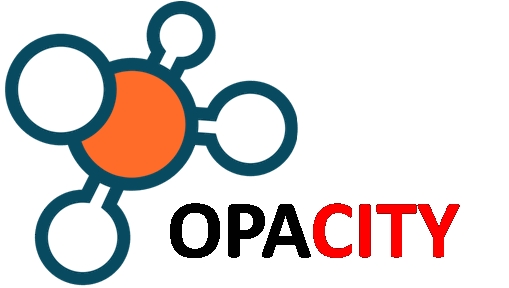Description

Opacity

Volopay

Xpenditure Expenses
Comprehensive Overview: Opacity vs Volopay vs Xpenditure Expenses
As of my last update, Opacity, Volopay, and Xpenditure (also known as Rydoo after rebranding) are financial technology platforms focusing on different aspects of expense management, corporate expenses, and financial transparency. Here is a breakdown of their primary functions, target markets, market share, user base, and differentiating factors:
Opacity
a) Primary Functions and Target Markets
- Primary Functions: Opacity is primarily a cloud storage solution focused on data privacy. Users can store data securely and share files without having their identities being linked to their data. While it is not a direct expense management tool like Volopay or Xpenditure, it serves a niche market concerned about privacy and anonymity.
- Target Markets: Individuals and businesses seeking secure, private solutions for storing and sharing files, especially in regions with increasing regulatory demands on data privacy.
b) Market Share and User Base
- Market Share: As of the latest data, Opacity holds a niche segment in the competitive cloud storage market. It is not a leader in the corporate expense management market like the other two.
- User Base: Specific data on Opacity’s user base is not readily available, but its focus on privacy might limit its participation compared to larger, mainstream cloud storage options.
c) Key Differentiating Factors
- Focus on privacy and anonymity.
- Offers an alternative to traditional cloud storage solutions, with an emphasis on decentralization.
Volopay
a) Primary Functions and Target Markets
- Primary Functions: Volopay offers corporate cards, expense management, and accounts payable automation. It integrates expense claims, automated approvals, accurate accounting, and real-time expense tracking.
- Target Markets: Small to medium-sized enterprises (SMEs), startups, and enterprises, especially in regions like Asia-Pacific where digital payments and SME empowerment are burgeoning.
b) Market Share and User Base
- Market Share: As a relatively new player, Volopay has been progressively growing, trying to capture the startup and SME sector by offering unique corporate financial services.
- User Base: The user base is growing, particularly in regions with a strong presence of tech-savvy SMEs.
c) Key Differentiating Factors
- Comprehensive financial suite, combining both traditional finance functions with bureaucratic ease.
- Emphasis on technology integration in Asia-Pacific regions.
- Offers real-time tracking and control over employee expenses.
Xpenditure (Rydoo)
a) Primary Functions and Target Markets
- Primary Functions: Rydoo (originally Xpenditure) focuses on travel and expense management, providing tools for receipt capture, reporting, and analysis of corporate expenses.
- Target Markets: Enterprises of various sizes, particularly those with frequent travel requirements, like consulting firms and multinational corporations.
b) Market Share and User Base
- Market Share: Rydoo has a significant presence among corporate clients due to its comprehensive expense management suite.
- User Base: Firms across Europe and expanding into other geographies with customers interested in streamlining travel expenses and compliance.
c) Key Differentiating Factors
- Strong focus on travel-related expense management.
- Provides a robust mobile and web app platform that integrates seamlessly with existing corporate systems.
- Positioned to offer global solutions suitable for enterprises with complex multi-currency and multi-regional operations.
Summary
Opacity stands out with its privacy-centric approach focusing on cloud storage, not directly competing with expense management firms like Volopay and Rydoo. Volopay, with its emphasis on integrated financial solutions for SMEs, differentiates itself with a regional focus and ease of use. Meanwhile, Rydoo, well-established in the travel and expense management space, offers comprehensive tools ideal for businesses with significant travel requirements. Market share and user bases vary, with Rydoo likely having a stronger foothold due to its longer market presence and established client base in travel-heavy industries.
Contact Info

Year founded :
Not Available
Not Available
Not Available
France
Not Available

Year founded :
2020
+65 8535 4016
Not Available
Singapore
http://www.linkedin.com/company/volopay

Year founded :
Not Available
Not Available
Not Available
Not Available
Not Available
Feature Similarity Breakdown: Opacity, Volopay, Xpenditure Expenses
Sure, let's break down the feature similarities and differences between Opacity, Volopay, and Xpenditure Expenses. These platforms generally provide expense management solutions but may vary in their approach and unique offerings.
a) Core Features in Common
-
Expense Tracking: All three platforms allow businesses to track and manage expenses efficiently, reducing the reliance on manual entry and cumbersome processes.
-
Receipt Scanning: Each provides the capability to scan or upload receipts to streamline the documentation process.
-
Corporate Cards and Spend Management: These solutions often integrate with company credit cards, allowing for spend control and budget management.
-
Reporting and Analytics: They feature reporting tools to provide insights into spending patterns, helping businesses optimize their expense management.
-
Integration with Accounting Software: Seamless integration with popular accounting systems like QuickBooks, Xero, and others is typically available to ensure all financial data aligns correctly.
b) Comparison of User Interfaces
-
Opacity: Known for a clean and minimalistic design, Opacity’s UI focuses on simplicity and ease of use. It usually emphasizes essential functions with straightforward navigation, appealing to those preferring a no-frills approach.
-
Volopay: Offers a modern and vibrant interface designed for tech-savvy users. Its dashboard is more visually dynamic, often featuring elements that encourage user engagement through interactive visual analytics.
-
Xpenditure Expenses: Balances functionality and aesthetics with a professional look. It typically caters to corporate needs with a structured layout, emphasizing efficiency and integrating seamlessly into a corporate structure with clarity as a priority.
c) Unique Features
-
Opacity:
- Privacy-Centric Features: Opacity may emphasize privacy and data protection beyond standard practices, setting it apart for companies prioritizing data security.
- Custom Workflow Automation: Allows users to create bespoke workflows that can better align with specific business processes.
-
Volopay:
- Integrated Financial Services: Goes beyond just expense management by incorporating broader financial services like automated bill payments and a financial management platform for startups.
- Rewards and Cashbacks: Distinct for offering reward schemes or cashback on business expenses made through their platform.
-
Xpenditure Expenses:
- AI-Powered Receipt Analysis: Xpenditure may focus on AI capabilities to auto-categorize and analyze receipt data with precision.
- VAT/GST Compliance Tools: Enhanced tools for managing VAT/GST compliance, making it an attractive option for international businesses operating across multiple jurisdictions.
Each platform indeed provides a suite of core functionalities that cater to efficient expense management solutions, yet their differentiation lies in UI design philosophy and the addition of unique features that target specific business needs or preferences.
Features

Not Available

Not Available

Not Available
Best Fit Use Cases: Opacity, Volopay, Xpenditure Expenses
When considering Opacity, Volopay, and Xpenditure Expenses, each platform offers unique features and capabilities that can cater to different business needs and scenarios. Here’s a breakdown of the best fit use cases for each:
a) Opacity
For what types of businesses or projects is Opacity the best choice?
Opacity is a decentralized cloud storage solution known for its privacy-focused approach, where user data is encrypted and the service does not require personal information for usage.
- Privacy-Centric Projects: Businesses that prioritize data privacy and want to avoid data surveillance would find Opacity beneficial.
- Blockchain or Cryptocurrency Enthusiasts: Projects that are aligned with blockchain technology or those that want to integrate decentralized solutions.
- Small Businesses and Startups: Particularly those that need to manage sensitive information securely without investing heavily in traditional cloud infrastructure.
b) Volopay
In what scenarios would Volopay be the preferred option?
Volopay is a financial technology platform designed for managing company spending with features like smart corporate cards and expense management.
- Startups and SMEs: Especially those looking to streamline their financial processes, control expenses, and improve cash flow.
- Companies with Frequent Business Expenses: Businesses that need better visibility and control over employee spending.
- Enterprises Emphasizing Financial Efficiency: Companies focusing on reducing friction in accounting processes and seeking integration with existing financial tools.
c) Xpenditure Expenses
When should users consider Xpenditure Expenses over the other options?
Xpenditure is a platform that simplifies expense management through automation and digital receipt capabilities.
- Companies Transitioning from Manual Expense Processes: Organizations aiming to shift from paper-based systems to digital solutions.
- Businesses Needing Detailed Expense Analytics: Firms that require advanced reporting and analytics for financial transparency and compliance.
- Organizations with Frequent Travel and Reimbursements: Companies with a high volume of employee travel and associated expenses looking to automate the reimbursement process.
d) How do these products cater to different industry verticals or company sizes?
-
Opacity: Given its focus on privacy, Opacity is ideal for industries such as healthcare, legal, or any sector handling sensitive client data. It caters mainly to smaller businesses or projects but could scale to larger organizations focused on privacy.
-
Volopay: This platform fits well with tech-savvy industries such as technology, digital marketing, and creative industries. It supports businesses from startups to mid-sized companies that require agile financial management.
-
Xpenditure Expenses: Xpenditure suits a wide range of industries, including consulting, finance, and travel. It works well for small to large enterprises that deal with numerous transactions and need efficient expense processing and reporting.
Overall, while there is some overlap in their capabilities, each of these platforms offers distinct advantages depending on the specific needs related to privacy, expense management, and financial control.
Pricing

Pricing Not Available

Pricing Not Available

Pricing Not Available
Metrics History
Metrics History
Comparing teamSize across companies
Conclusion & Final Verdict: Opacity vs Volopay vs Xpenditure Expenses
To provide a comprehensive conclusion and final verdict for Opacity, Volopay, and Xpenditure Expenses, let's evaluate each product considering overall value, pros and cons, and recommendations for potential users.
Conclusion:
a) Best Overall Value:
Determining which product offers the best overall value depends on the specific needs and priorities of the user. However, generally speaking:
- Volopay might offer the best overall value for businesses seeking a holistic financial management solution with strong integrations and real-time analytics. It's known for a user-friendly interface and scalability, making it suitable for both small businesses and larger enterprises.
b) Pros and Cons:
-
Opacity:
- Pros:
- Strong emphasis on data privacy and security, making it ideal for businesses with stringent data protection needs.
- Transparent pricing without hidden fees.
- Cons:
- Limited range of features compared to more comprehensive platforms.
- May require additional tools or integrations for complete expense management.
- Pros:
-
Volopay:
- Pros:
- Comprehensive suite of features including corporate cards, real-time expense tracking, and strong analytics.
- Supports international payments and multi-currency transactions, helpful for businesses with global operations.
- Cons:
- May have a steeper learning curve for users who aren't tech-savvy.
- Pricing might be higher for small startups compared to simpler solutions.
- Pros:
-
Xpenditure Expenses (now known as Rydoo):
- Pros:
- User-friendly interface with robust features tailored for expense report automation.
- Strong mobile application for on-the-go expense reporting.
- Cons:
- May lack some advanced financial management features offered by competitors.
- Integration limitations with certain accounting software.
- Pros:
c) Recommendations:
-
Opacity vs Volopay:
- If data security and simplicity are of utmost concern, choose Opacity. However, for more integrated financial tools and analytics, Volopay is preferable.
-
Opacity vs Xpenditure Expenses:
- Opt for Opacity if maintaining control over data privacy is critical. For better expense report automation and ease of use, Xpenditure might be a better choice.
-
Volopay vs Xpenditure Expenses:
- Select Volopay for a more comprehensive financial management solution with advanced analytics and scalability. Choose Xpenditure if your primary need is efficient expense report management with robust mobile capabilities.
Final Verdict:
The decision largely depends on the specific needs of your business. Volopay generally provides the best value for businesses looking for a comprehensive, scalable solution. Nonetheless, if your focus is on privacy or straightforward expense management, Opacity or Xpenditure, respectively, could be more suitable. Evaluate your organization’s priorities, such as data security, feature requirements, and budget, before making a final decision.